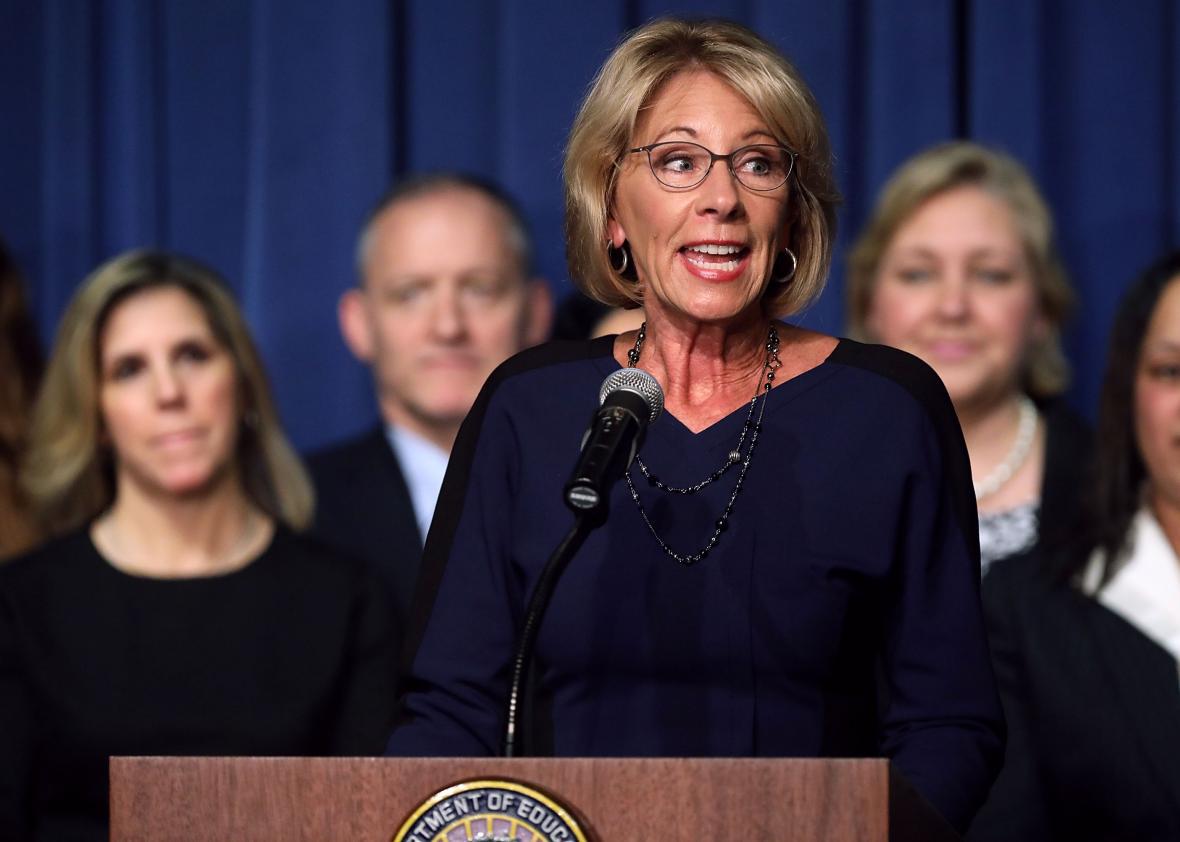It’s hard to determine what is more frightening about new Secretary of Education Betsy DeVos. Is it the issues she has opinions about? Or is it those she seems to lack an opinion on, and perhaps even an understanding of? Among the many subjects that DeVos has yet to reveal any insight into is early childhood education, despite the fact that the expansion of such programming has bipartisan support and was a priority for the previous administration.
Fortunately, DeVos need not travel far beyond her apparently limited comfort zone in order to gain insight into how and why high-quality, large-scale preschool programs can work. Like Dorothy, the answers have been in her own back yard the entire time, something a new paper from the Brookings Institution on the success of free early education in her home state of Michigan should help her see.
Measuring the long-term benefits of early childhood programs has proved difficult, a problem complicated by the fact that the quality of such programs can vary tremendously, even on a classroom-by-classroom basis. But the success of Michigan’s Great Start Readiness Program should help put critics’ fears at ease. The state’s program, which is for “children with factors which may place them at risk of educational failure,” has served more than 500,000 4-year-olds since 1985 and currently serves more than 32,000 a year. In 1995, Michigan began an independent evaluation of its program that followed the children over the course of their public education. (Many evaluations only follow children into the early elementary school years.) The Michigan program is currently the only state-funded preschool evaluation that stayed with children up until high-school graduation, which allowed researchers the rare opportunity to determine the long-term gains of early education.
The study found that: “At every stage (kindergarten entry, second grade, fourth grade, middle school, high school graduation), GSRP participants outperformed comparison groups on school success indicators, most prominent being grade retention. At high school graduation, students who participated in GSRP also graduated on time significantly more than those who did not participate.”
The paper’s authors argue that one of the reasons this has been so successful is because of Michigan’s ongoing commitment to ensuring that the program retain its quality, even as it expanded. This involved both the creation of high standards, as well as regular monitoring to make sure those standards are met. The takeaway here is that it isn’t enough to simply offer pre-K, whether to low-income families or, as in New York, to everyone, but the curriculums must be well thought-out and the teachers properly trained.
Yes, this sounds like a no-brainer; but investment in early childhood education hasn’t always been matched with the realization that if it isn’t done well, the children might not end up benefiting much from it. (For example, in 2007, only 38 percent of teachers for Head Start, the federal early childhood education program for low-income families, had bachelor’s degrees. Today that number is 74 percent, largely because of efforts made by the Obama administration. Over this time, the classroom quality has also improved.) If and when publicly funded preschool programs fail, it is most often because of our failure to take them seriously, and not because they weren’t really necessary in the first place.
Currently, between a third and half of American 4-year-olds are not enrolled in preschool, a figure that should give DeVos, and the rest of America, pause, considering the results of the Michigan study as well as other mounting evidence in favor of free, high-quality preschool. Here’s hoping that DeVos will carry on with the work done by both the Bush and Obama administrations and help guarantee that preschool becomes available to all.
